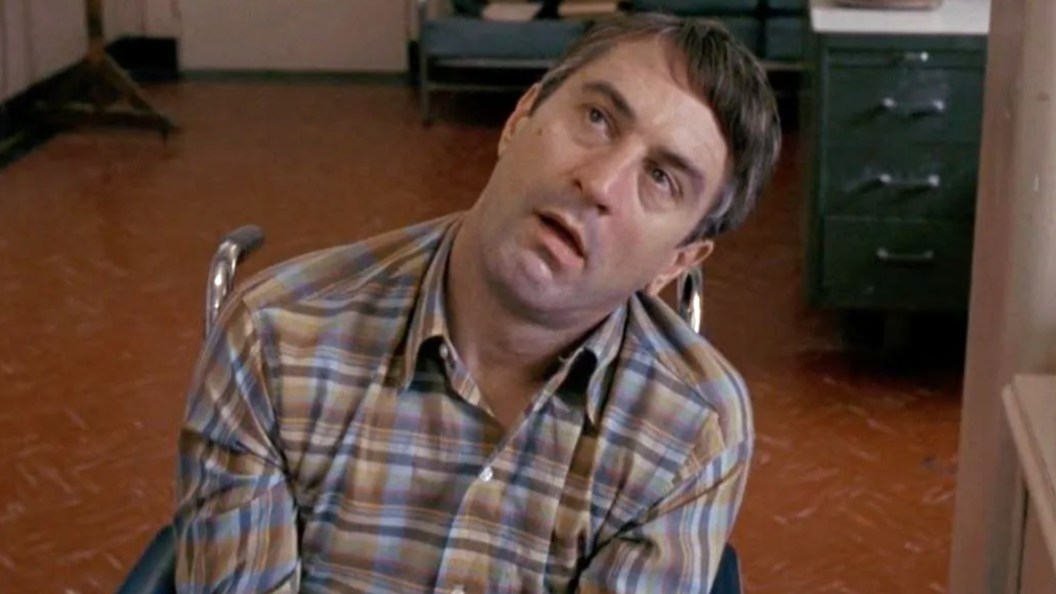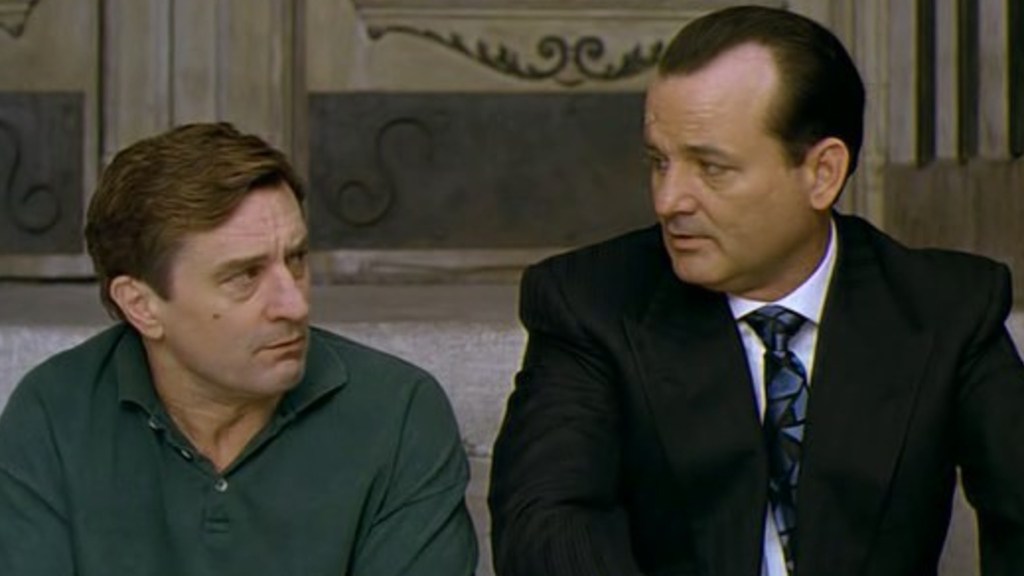
Robert De Niro has built a legendary career playing intimidating, often volatile men. From Taxi Driver and Raging Bull to Cape Fear and The Untouchables, his most famous characters feel like they’re holding back fountains of rage. Even his later comedic roles trade on that expectation, and often lean in just as hard. But every so often, De Niro flips the script. He’s tender in Stanley & Iris, unexpectedly sincere in Mad Dog and Glory, and hauntingly still in Awakenings. It’s in these roles – where the menace is swapped for vulnerability – that he becomes most surprising. Robin Williams, too, made a parallel journey. Known for manic energy and improv genius, his most affecting work came when he dialed it down – Dead Poets Society, The Fisher King, Good Will Hunting. These were roles that didn’t hide his soul behind punchlines.
Awakenings (1990), directed by Penny Marshall and based on the real-life memoir by Oliver Sacks, pairs De Niro and Williams in roles completely against type for both. The story follows Dr. Malcolm Sayer (Williams), a shy neurologist who discovers a drug that temporarily brings catatonic patients back to being fully awake. De Niro plays Leonard Lowe, the first patient to “wake up,” and it’s unlike anything else in his filmography. His transformation from stillness to emotional clarity is compelling, and as the tragic story progresses, chillingly human. It’s a rare performance that doesn’t demand your attention as much as it earns it. Unfortunately, Awakenings has just vanished from streaming. As of this month, it’s not available on any subscription platform. You can rent or buy it digitally, but its absence is a loss for anyone hoping to stumble across one of De Niro’s finest turns.
All the same, it deserves the effort to find it and watch it. What makes Awakenings so good is the deftness with which it handles such a heavy subject. It’s sad, yes, but not exploitative or particularly manipulative. De Niro’s Leonard is a man who gets a brief, miraculous second chance, and then has to reckon with the fact that it may not last. His physicality is astonishing: his increasing tics, the way his posture shifts, and how he quietly conveys Leonard’s tragedy.
Oliver Sacks, whose work inspired the film, said of De Niro’s approach: “I think in an uncanny way, De Niro did somehow feel his way into being Parkinsonian. So much so that sometimes when we were having dinner afterwards I would see his foot curl or he would be leaning to one side, as if he couldn’t seem to get out of it. I think it was uncanny the way things were incorporated.” That complete but not showy immersion is what separates this performance from his flashier roles. Williams matches him, playing Sayer as a man afraid of his own emotions, finding purpose in giving others a chance to live.
For a film about illness, Awakenings is ultimately about connection – what it means to wake up to the world, even if just for a moment. That it’s currently not easily accessible is quietly heartbreaking.
If You Liked Awakenings, Watch These Movies Next

Williams and De Niro put out some surprisingly restrained, but equally impressive performances over their careers, and each of the following is a good chance to explore their range as much as Awakenings:
Mad Dog and Glory (1993)
De Niro again plays against type, this time as a soft-spoken crime scene photographer who gets entangled with a mob boss (Bill Murray) and a mysterious woman (Uma Thurman). What’s fascinating is how passive his character is – watching rather than acting – which lets his vulnerability come through in unexpected ways. A low-key, darkly tender oddity that’s available to rent on Amazon Video or Apple TV.
Stanley & Iris (1990)
Often overlooked and not exactly critically adored at the time, this quiet drama pairs De Niro with Jane Fonda in a working-class love story. He plays a man who never learned to read, and his gradual growth is portrayed with unusual delicacy. No shouting, no swagger – just raw humility. Stream it on Prime Video.
The Fisher King (1991)
Robin Williams delivers one of his best dramatic performances as a homeless man with a shattered psyche, haunted by tragedy. Jeff Bridges plays the narcissistic radio DJ who inadvertently caused that tragedy. Directed by Terry Gilliam, it’s a surreal, often painful, yet strangely hopeful film about redemption and madness. Also available to rent on Amazon Video or Apple TV.
What Dreams May Come (1998)
Williams explores the afterlife in this visually ambitious, emotionally charged story of love, grief, and persistence beyond death. While divisive in style, it’s one of his most soulful performances – aching and poetic, far from his comic persona. Also available to rent on Amazon Video or Apple TV.
The post The Best Robert De Niro Performance Nobody Talks About Just Disappeared From Streaming Completely appeared first on ComicBook.com.


